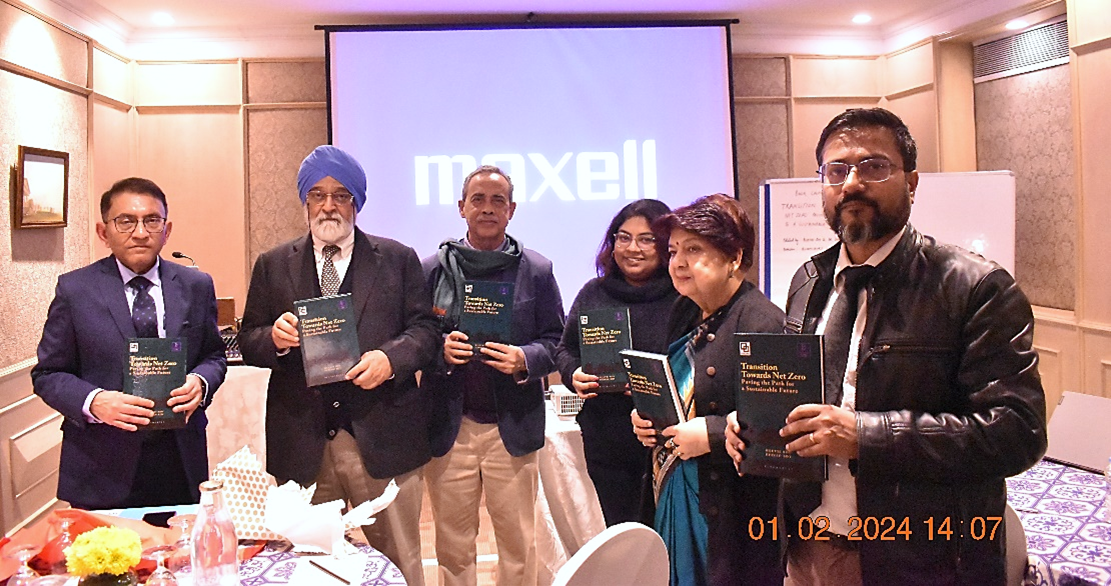
A book launch titled ‘Transition Towards Net Zero: Paving the Path for a Sustainable Future,’ written by Dr Debesh Roy and Bijetri Roy on the concept of net zero which entails achieving a balance between the amount of Greenhouse Gases (GHGs) released into the atmosphere and the amount removed from it.

Shubhashis Dey, Director, Climate Policy & Climate Finance, Shakti, Dr Nandini Biswas, Assistant Professor, School of Humanities, K.R. Mangalam University, and Kruthika Jerome, Programme Manager, Climate Finance at Shakti, co-authored a well-examined chapter titled ‘Responding to Climate Change in BANI world with Climate Finance Measures.’

The book comprises chapters contributed by respected professionals and researchers, delving deep into the anthropogenic factors driving heightened carbon emissions. It also examines global and Indian efforts in mitigating and adapting to climate change, alongside the significant challenge of mobilising climate finance on a global and national scale. Through this comprehensive exploration, the book sheds light on the intricate path toward achieving a sustainable net-zero future. This worldwide issue affects humanity, biodiversity, ecosystems, and infrastructure, emphasising the pressing need for action. The urgency is further emphasised by the Intergovernmental Panel on Climate Change’s (IPCC) forecasts of severe climate risks by the century’s end, even under low-emission scenarios.
To confront this crisis, the book emphasises the critical need for ambitious and accelerated action in both climate change adaptation and robust mitigation efforts. Meeting the Paris Agreement’s target of limiting global warming to 1.5°C demands that global greenhouse gas emissions peak before 2025, decrease by 43% by 2030, and achieve net-zero by 2050. While advanced economies like the US, the UK, the EU, and Japan aim for net-zero by 2050, emerging markets such as China and India set targets for 2060 and 2070.
